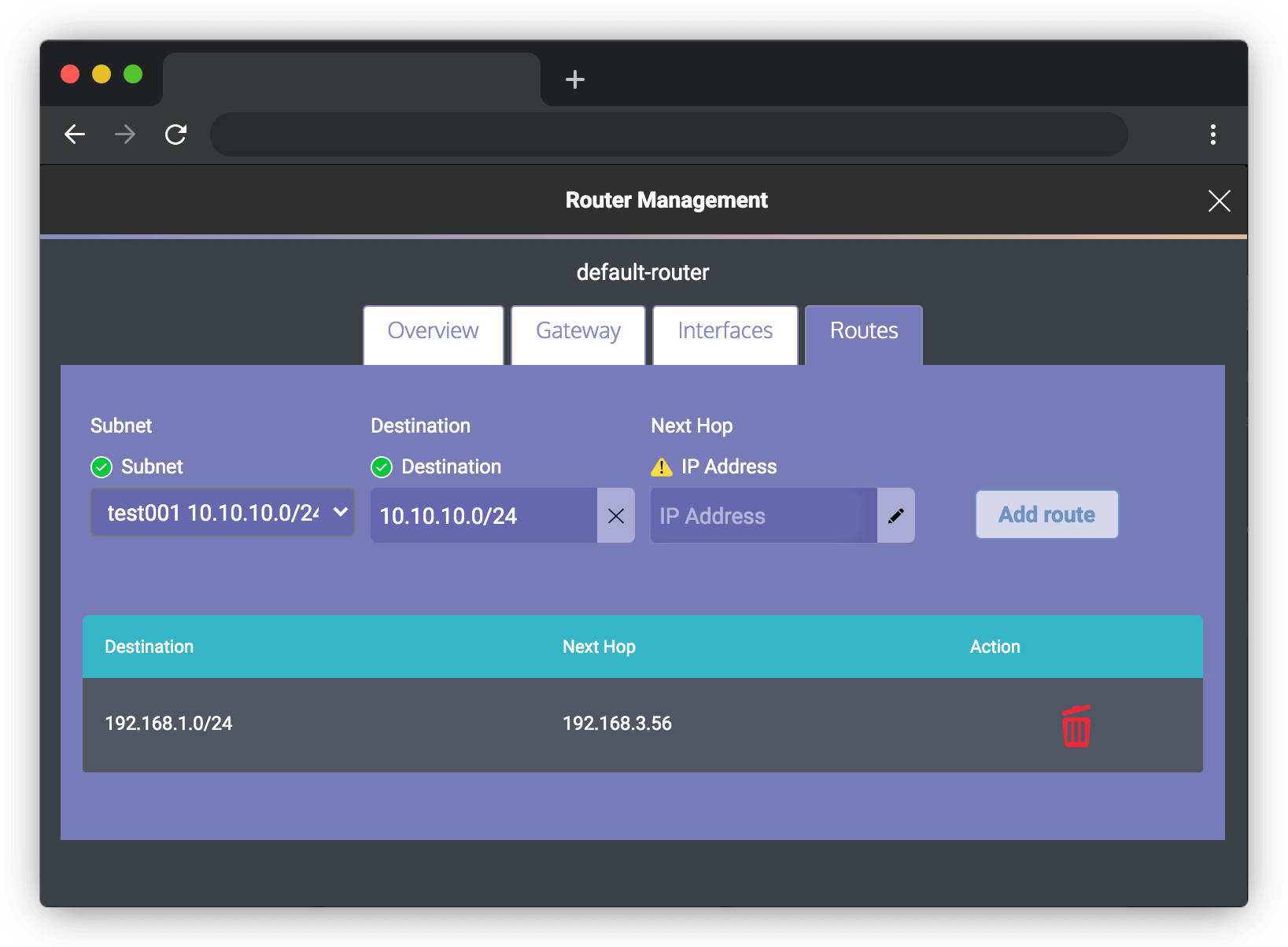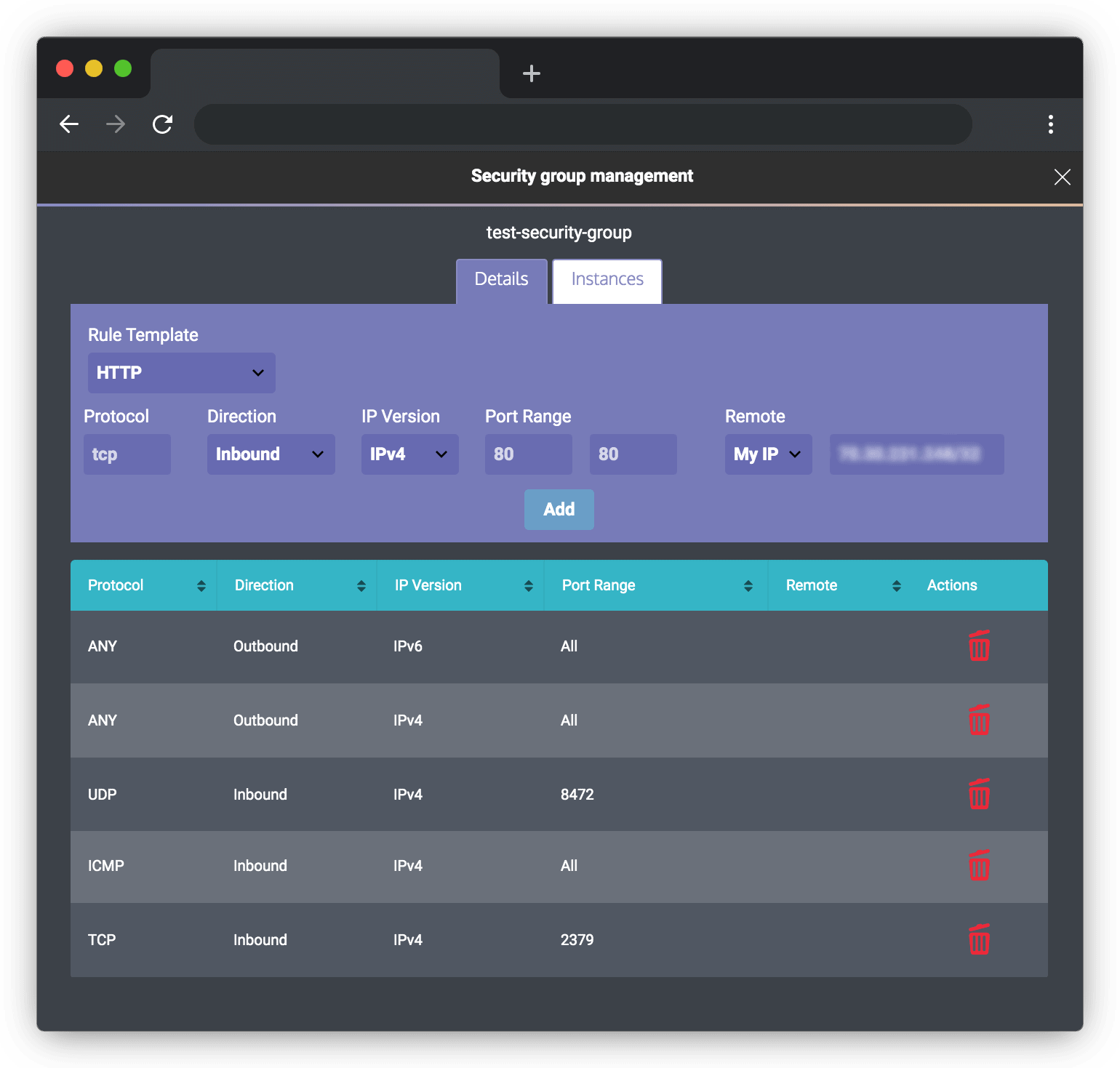Network as a service
- Virtual network
- Virtual firewall
- Virtual routers
- Floating IP
- VPN as a service
- DNS management
- Load balancers
- Private IP management
- Port forwarding
Networking services
Ready to use implementations for popular networking components.

Virtual network
Create as many networks as you need and define private IP ranges for isolated network segments. Jiyus offers strong network isolation based on Layer 2 (data link physical addressing), but is aware of and leverages Layer 3 features (IP addresses and ports) too.

Virtual firewall
Every network port comes with security features enabled by default. Harmful traffic such as IP spoofing is blocked. Flexible traffic filtering is enabled by default without relying on potentially insecure and difficult to manage OS firewalls.

Virtual routers
Use virtual routers when you need to interconnect networks or provide access to other networks including the internet. A router can also deliver incoming traffic from the internet to your resources that use floating IPs or port forwarding (e.g. instances).

Floating IPs
To create publicly available services, use floating IPs. However, assigning a floating IP address exposes your service directly on the Internet, so you can alternatively use a virtual firewall to restrict undesired traffic and make sure your service is properly secured.

VPN as a service
Build secure site-to-site VPN connections using VPN as a service. You can interconnect accounts in different deployments via an encrypted channel, or use popular hardware or software appliances to create a connection between your office and your edge services.

DNS management
Manage your DNS records and subdomains using DNS as a service. Simply point your DNS to one of our servers, and manage the records via UI, API, or Jiyus’s orchestration tools. This is a one stop shop for everything you need to build and deploy your applications.

Load balancers
Networking load balancers are internally redundant and designed to direct traffic between multiple backends using flexible balancing rules. Load balancers provide both high availability and support the horizontal scalability of your applications.

Private IP management
Unlike old school virtualization, you don’t need to do anything special to manage private IP addresses on virtual networks. Define desired IP ranges for your networks, and Jiyus will automatically assign IP to any service connecting to your network. No DNS servers to manage, no conflicts to worry about.

Port forwarding
In many regions, IPv4 addresses are scarce and expensive. With Jiyus, you don’t need dedicated IP for incoming connectivity to VMs or services. Instead, create port forwarding to map individual TCP or UDP ports to different private IP addresses/ports—thus sharing a single floating IP between multiple services.
How-to: Attach a network, subnet, and security group to an instance.
Networking for highly demanding applications.
High throughput
The physical networks interconnecting the servers within Jiyus’s co-located data centers are 20Gbps or faster, depending on hardware generation. This ensures you have enough network throughput for the most demanding applications.
Distributed routing
Jiyus’s virtual routers are highly available and distributed across multiple compute servers. This mechanism enables you to build highly-available, fault-tolerant applications that can keep working even when individual hardware components fail.
Features

Fully integrated into the platform
Jiyus offers a consistent set of networking features for all the Jiyus platform services: instances, containers, databases, application services, and others.

Declarative orchestration tools
Incorporate networking infrastructure into your orchestration stack. Use YAML-based descriptions to create, configure, and connect the building blocks of your application.

Disable default security settings
Jiyus allows you to disable network security administratively when default security settings block certain protocols and applications from properly functioning.

QoS
You can enable networking QoS (Quality of Service) to limit or prioritize certain kinds of traffic. Ensure that low priority resources like backups or file uploads won’t impact bandwidth and cause service degradation.

L7 traffic analysis
Load balancers can support HTTP protocol content analysis and can make balancing rules based on HTTP data. You can also configure SSL termination with your own SSL certificates on load balancers.

Custom routing
For complex networking configurations, directly add custom static routes to virtual routers. This flexibility enables you to build non-standard traffic paths (e.g. dedicated gateways for site-to-site VPN connections) without reconfiguring clients individually.




